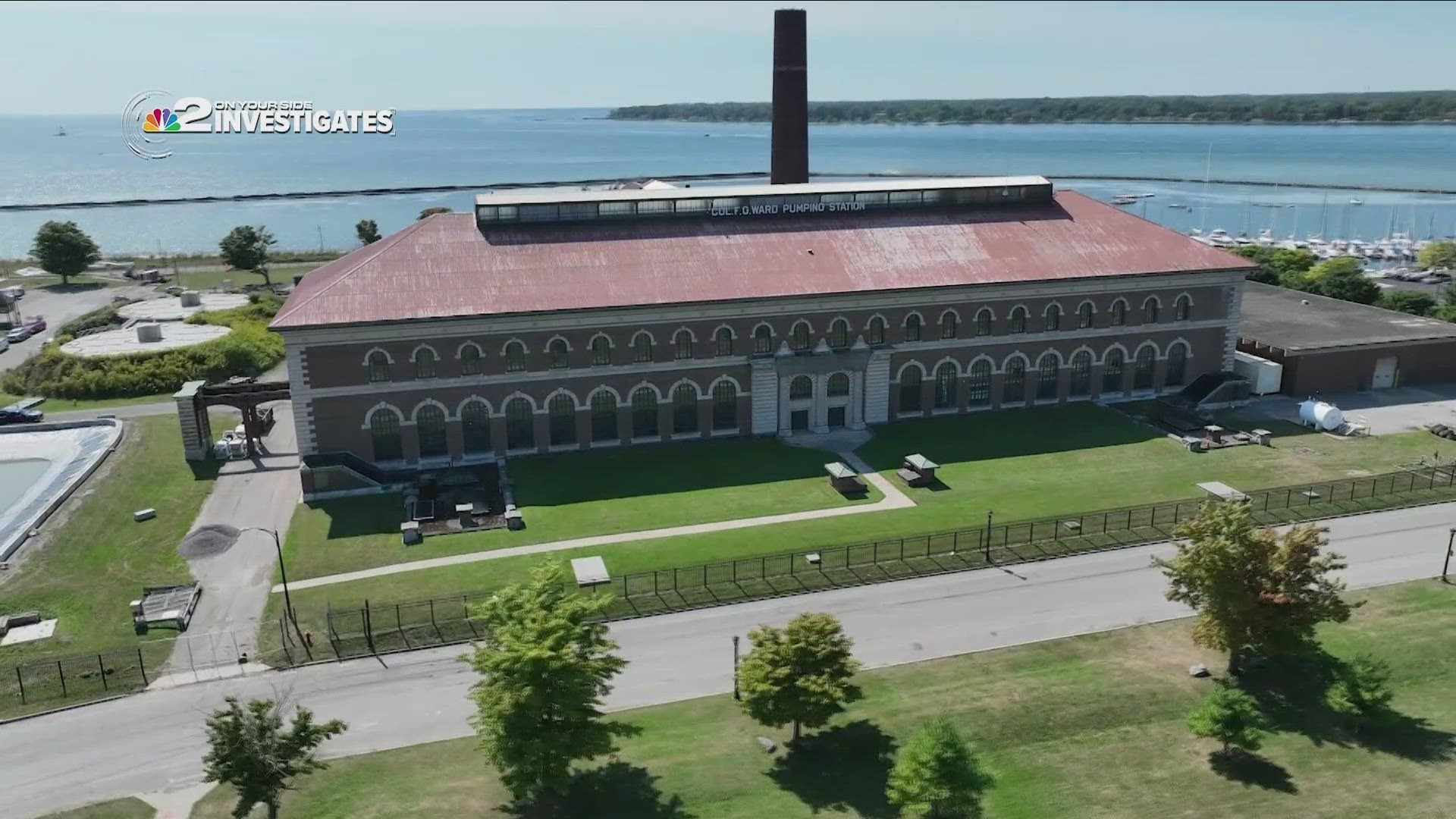BUFFALO, N.Y. — In the wake of multiple controversies, the Buffalo Water Board is now being scrutinized for limiting public access to its meetings in ways that may run afoul of one of New York State’s government transparency laws.
2 On Your Side Investigative Reporter Charlie Specht this week sent a letter to the New York State Committee on Open Government seeking an advisory opinion on whether the Water Board and its chairman, O.J. McFoy, violated the Open Meetings Law in four recent instances.
The letter outlined four ways in which the board may have violated the law “by failing to hold public meetings in the most publicly accessible locations, by rescheduling meeting dates without notice to the public, by suggesting that only ‘designated attendees’ and not all members of the public are allowed to attend its meetings, and by not posting meeting minutes in a timely manner.”
McFoy, who was appointed 17 years ago by former Mayor Byron W. Brown, was criticized earlier this year for failing to fluoridate Buffalo’s water for a nine-year period and for failing to adequately notify the public about the change.
He was also criticized after a 2 On Your Side investigation revealed that he spent 297 weekdays traveling to 23 states and two foreign countries for various water conferences during that time period.
McFoy declined an interview request Friday and said in an email that a city engineer was responsible for “our commitment to ensuring adherence to Open Meetings provisions” because the engineer is the Water Board’s secretary.
2 On Your Side was unable to speak with Acting Mayor Christopher P. Scanlon, who is dealing with the death of his brother. But Deputy Mayor Brian A. Gould said Scanlon will "strongly recommend" that both the Water Board and Sewer Authority meet the transparency requirements of public agencies that are outlined in the Open Meetings Law, as well as other recommendations that are outlined by the state Authorities Budget Office.
Gould said this is part of a broader effort the new mayoral administration is making to increase transparency in city government. More details about this will be released in the next few weeks, Gould said.
2 On Your Side was unsuccessful in trying to reach other Buffalo Water Board members, whose names and email addresses are not listed on the City of Buffalo or Buffalo Water websites.
Multiple members of Buffalo’s Common Council say McFoy and the Water Board need to be more transparent in how they operate.
University District Council Member Rasheed N.C. Wyatt in a recent committee meeting questioned why the board holds meetings and public hearings — such as the recent hearing to air resident concerns about a spike in water rates — not at Buffalo City Hall but at the Col. Ward Pumping Station on Porter Avenue, despite physical barriers to public access that exist there.
McFoy acknowledged under questioning from Wyatt that only one person showed up to the public hearing on increased water rates.
“I hope that we can look at this and we can really do something better as far as informing the public,” Wyatt said. “There’s got to be a public dialogue and it shouldn’t be on the outskirts of nowhere because nobody knows where you are.”
Niagara District Council Member David A. Rivera, North Council Member Joseph Golombek, Jr., and Ellicott District Council Member Leah M. Halton-Pope also said the Water Board should hold its meetings at City Hall.
In addition to the issue of meeting location, the 2 On Your Side letter to the state’s open government committee outlined three other instances in which the Open Meetings Law may have been violated:
–A Sept. 18 meeting the Water Board rescheduled without notice to the public. The Open Meeting Law states that the public must be notified one week in advance of public meetings.
–A Sept. 26 meeting that the board said on its agenda would be held at the pumping station “for all Water Board Members, and a few other designated attendees. Others may attend via video conference call through MSTeams.”
The Open Meetings Law states, “A public body shall provide an opportunity for the public to attend, listen and observe meetings in at least one physical location at which a member participates.”
–The failure of the Water Board to post the minutes of recent meetings on its website. The Open Meetings Law states that the minutes of public meetings “shall be posted on the website within two weeks from the date of such meeting.”
The board has not posted the minutes of meetings it held on July 10 – 17 weeks ago – nor has it posted the minutes of meetings that, according to its schedule, were held on Aug. 21 and Sept. 26.
Click here to read the letter to the State Committee on Open Government.
The city is currently a named defendant in a class-action lawsuit filed by city parents who said they needed to seek emergency dental surgery for their children due to a lack of fluoride, which prevents tooth decay, in the water supply.
Rivera and Wyatt cited the fluoride flap as another instance in which the Water Board failed to adequately communicate with the public.
“I said to them a couple years ago, you’ve got to do better in public engagement,” Wyatt said. “And that’s not happened still.”
2 On Your Side has not heard back from the State Committee on Open Government. The agency, which is part of state government in Albany, does not have the power to sanction agencies that violate transparency laws but its officials are often asked to write advisory opinions to settle disputes between citizens, government agencies and the news media.

